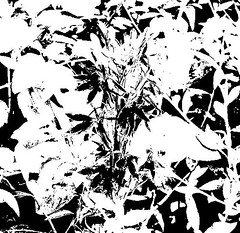Render unto God, Part I
We at Jeff Street are blessed to have the best pastor in the world. It can be difficult to include her sermons here in this blog, as they might lose something out of context. But her sermons are so consistently fantastic, that I really ought to try occasionally. And so, I offer one from Lent last year:
One of the things that I've noticed as I've studied the book of Mark during this Lenten season is that Jesus wasn't as set on answering questions as he was on asking them. It happens over and over again, someone or a group of someones would ask him a question, and instead of answering it, he'd ask them one back.
Ched Myers says that Jesus' strategy was to break the spell of credulity (a disposition to believe on slight evidence) that the social order casts over its subjects and so to force a crisis of faith. Jesus engages the listener with disturbing and disrupting quandaries that animate toward change, rather than with logically satisfying answers that pacify.
Of course, the church over the years, instead of learning to do the same, instead of asking questions that move people toward changing, has fallen into the roll of coming up with answers that make everyone just feel good instead.
Myers says that Jesus isn't the answer to our questions, but is rather, the question to our answers. And in this morning's story, Jesus questions to the Pharisees also bring in question some of our deeply held answers about what it means to be a Christian and an American.
The Pharisees and the Herodians, which are an unlikely combination, an alliance of enemies, you might say, come together to trap Jesus. They begin by flattering him, setting him up: Because you're such a man of integrity, they say, we know that you'll answer this question truthfully (and then we'll get you!) Is it lawful to pay taxes to Caesar or not? Should we pay them, or should we not?
Paying taxes was a test of loyalty that divided those who collaborated with the Roman occupiers from the revolutionaries. According to Myers, no true Jewish patriot would have used such an idolatrous currency as a Roman coin. Not only did it have the image of Caesar, which a good Jew would see as a graven image, but it also bore an inscription extolling Caesar as the August and Divine Son. Down the road a bit, during the siege of Jerusalem in 70 AD, the refusal to pay taxes would be seen as the major cause of the war and the revolutionary provisional government in Palestine would mint its own coins.
That's how hot this question was. Jesus' antagonists knew that if Jesus said that one should pay taxes that he would anger the Jewish patriots, the revolutionaries. And they knew that if he said not to pay taxes that he would anger the Romans.
So Jesus knows that they're trying to trap him, trying to force him to take sides, remember, Jesus has been teaching his disciples the third way, not capitulation to the Romans, and not violent resistance, but rather non-violent resistance. But here they're trying to pin him down to one of the other ways. And so after saying, "Why put me to the test?" that should have been their warning right there, he says, "Bring me a coin, and let me look at it."
Notice, Jesus does not have a coin himself, and he makes it clear here that he does not have a coin. He is not a collaborator with Rome. They do have a coin, however, and in being able to produce it for Jesus, they do what they were trying to get Jesus to do, they reveal their political allegiances, they identify themselves as collaborators with Rome...
"Whose likeness and inscription is this?" Jesus asks. They answer, "Caesar's."
Render to Caesar - and let me stop here and explain that the word render means pay back, as if you were paying back a debt - render to Caesar the things that are Caesar's, and to God the things that are God's. Pay back to Caesar the things that are Caesar's, and pay back to God the things that are God's.
Now there are, of course, a lot of ways that this has been interpreted through the years, but according to Myers, the choices between the rival authorities of God and Caesar articulated in this verse could scarcely be stated more sharply. There are simply no grounds for reading the render statement as an exhortation to pay the tax.
Indeed, Luke's gospel records that Jesus' accusers, when they try Jesus before Pilate, say that they have found this man perverting our nation, and forbidding us to give tribute (i.e., pay taxes) to Caesar...
But what the church has done for years has been to use this passage to live as if we could have two allegiances, to live as if there were two different worlds, two different realms that had claim over us. You've got God's realm over here, the spiritual or religious world, and it's all about heavenly things, and you've got this other realm over here, the political realm, and you should give a little bit to both.
But Jesus, in saying to render to Caesar that which is Caesar's and to God that which is God's, isn't suggesting that we split our allegiances. I mean, just compare the two. Caesar, God. The United States of America, God. Jesus wasn't expecting his listeners to weigh the two equally. Jesus was saying that it's all God's. If you owe something to Caesar, if you have something of Caesar's, give it back. But it is, of course, God who is our all in all, creator of all, source of our life and breath, it is to God that we owe everything. There is no competition here, everything that we have, everything that we are, all of our allegiance is to God.
The earth is the Lord's, and the fullness thereof, the world and they that dwell within. The Caesars and the George Bushes and the Saddam Husseins. If only, if only we could see it.
======
by Pastor Cindy, but wait! There's more!
















